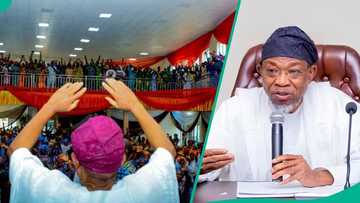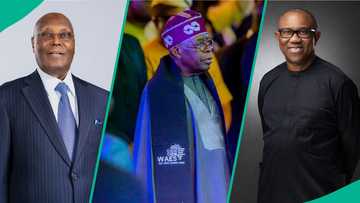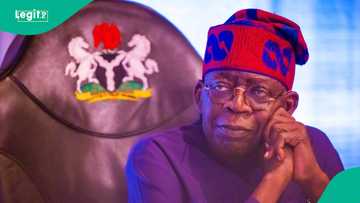Why Nigeria's 35% Affirmative Action Can Forge More Leaders Like Obama and Clinton
- Ene Obi decries poor female representation, revealing that women hold only 4.7% of Senate seats and calling Nigeria’s National Assembly a “male parliament"
- Despite legal wins like the 2022 court ruling on 35% affirmative action, the Federal Government has failed to implement gender parity in appointments
- Obi urges urgent action, saying women’s exclusion from politics weakens democracy and national development, and that inclusion is a right, not charity
The profound influence of mothers, particularly single mothers, on leadership is a theme that has echoed through the lives of many global icons. From Barack Obama and Bill Clinton to Oprah Winfrey, the strength, resilience, and nurturing influence of the women who raised them is undeniable.
In Nigeria, this same force exists, but continues to be sidelined in the country’s political sphere.
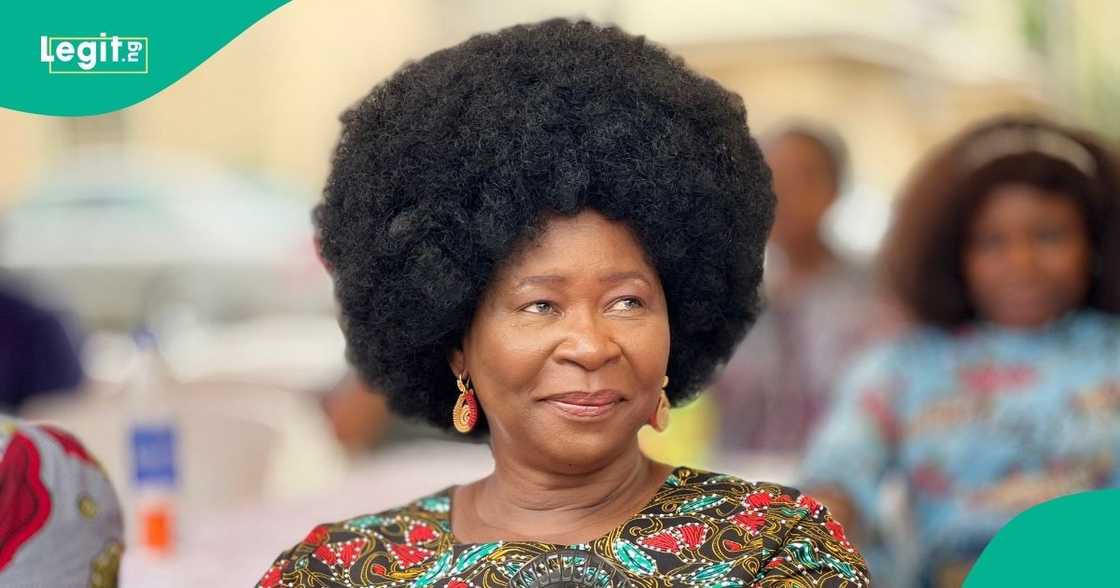
Source: Twitter
Former Country Director of ActionAid Nigeria, Mrs Ene Obi, speaking in an exclusive interview with Legit.ng, has spotlighted the stark underrepresentation of Nigerian women in public office and reignited the call for 35% affirmative action in governance—a promise made, ruled upon, yet unfulfilled.
‘A Male Parliament’: The Stark Imbalance of Representation
“The voices of over half the population are effectively silenced. What we have in Nigeria right now is a male parliament," Mrs Obi laments.
Her figures are revealing: in Nigeria’s 360-member House of Representatives, only 14 to 16 seats are held by women. In the Senate, out of 109 seats, a mere 3 or 4 are occupied by women, just 4.7% of representation. Even committees on “women affairs” are predominantly chaired and populated by men. State assemblies fare no better; some have no women at all.
The implications of this imbalance are far-reaching.
“What voices of women’s issues go into decision-making is a big source of concern,” she warns.
Legal Wins, Political Silence
Nigeria ratified the Beijing Platform for Action in 1995, committing to gender parity through affirmative action. After the 2019 elections saw women’s representation fall further, civil society groups like the Nigerian Women Trust Fund (NWTF) took legal action.
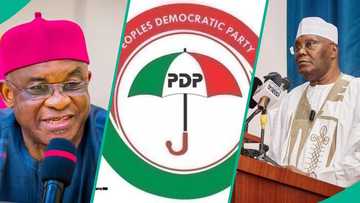
Read also
"PDP now a shadow of itself": Atiku, 2 other powerful politicians woo members to take major action
A landmark April 2022 judgment ordered the Federal Government to implement 35% affirmative action in appointments. Yet, Mrs Obi decries the inaction: “They are not implementing.”
She continues,
“We are not asking you to do anybody a favour. We are asking for the diversity in representation that enriches your decisions.”
‘Lip Service’ and the Absence of Political Will
Despite Nigerian women’s successes across professions, their absence in decision-making is glaring.
“There are millions of women excelling as lawyers, engineers, social scientists. But they are invisible in this country,” Mrs Obi says.
Patriarchy, religion, and culture are often blamed for the slow pace of change, but she insists, “Political will is very major. Leadership direction is key.”
She turns to motherhood to make a compelling argument.
“Many of us were raised by single mothers. If a woman can nurture life from conception and protect it with her very body, will she not be a better manager, a better decision maker?” She shares.
Her call to action is urgent and emotional. Referencing the high maternal and infant mortality rates, she asks:
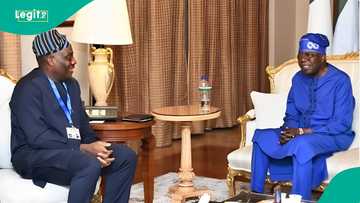
Read also
Education minister Alausa clears ₦50bn allowance backlog for varsity lecturers after nearly 20 years
“Who will advocate for the woman if she’s absent from the table?”
A Deafening Silence on Democracy Day
As Nigeria commemorated 26 years of democracy, President Bola Tinubu’s Democracy Day address was met with disappointment by gender advocates, who noted the absence of any mention of the 35% affirmative action.
Mrs Obi called on the President and the National Assembly to pass the long-delayed “inclusivity bill,” which includes special parliamentary seats for women. “When they go out of the country, it’s just a bloody shame,” she said, referring to Nigeria’s poor international image on gender representation.
She also condemned the string of broken promises by previous presidents. From Olusegun Obasanjo’s 40% pledge to Muhammadu Buhari’s similar vow, she labelled the pattern as a “deliberate effort to keep women down.”
‘We Are All Writing Our History’
For Mrs Obi, this movement is about legacy and justice.
“We are not doing any favour to Nigeria. We are all writing our history,” she declares.
“It should be 50-50,” pushing beyond the minimum 35% benchmark.
“Who are these women we’re talking about? They are your children; they are your daughters, your granddaughters, your mothers, your aunties, your cousins.”
Her message is clear: empowering Nigerian women is not just a matter of fairness—it is a national imperative. Inclusion is not charity; it is the only path to governance that reflects the full breadth of the Nigerian experience.
If Nigeria is to truly address its challenges—be they conflict, poverty, or underdevelopment—it must invest in the potential of its women, just as countless mothers have invested in the success of their children.
After all, as Mrs Obi passionately reminds us:
“If you protect a woman, you are protecting humanity.”
Nigerian women still chasing 35% affirmative action
Legit.ng had earlier reported that the off-cycle polls in Bayelsa, Kogi and Imo states missed an opportunity to produce women with leadership roles.
This pattern echoes the discouraging trends observed in the previous general election and the composition of President Bola Tinubu's cabinet.
The Nigeria Women Trust Fund (NWTF) is urging the government to actively prioritise and embrace the inclusion of women in key decision-making positions.
Source: Legit.ng


